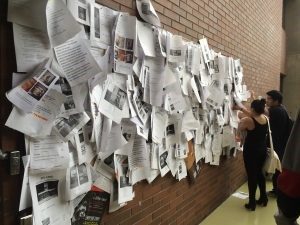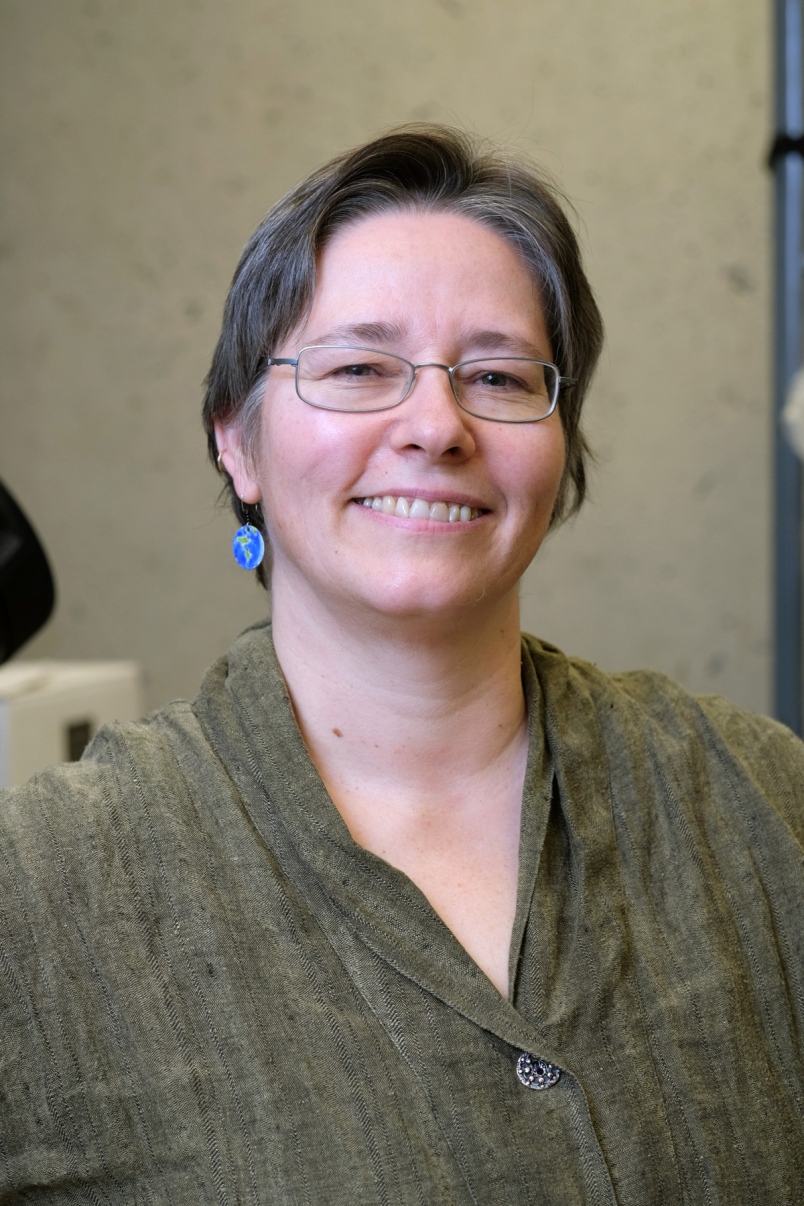Contributed by Jennifer Kirkey, Douglas College
Open textbooks became a cause of mine as I found more and more of my students could not afford the “required” textbook. To illustrate this point, consider this picture I took at the start of the semester in September 2016. This bulletin board is located outside our college’s bookstore. Students who clearly did not need their old textbooks, or who needed the money to buy new ones (or food!), put up posters in an attempt to sell their old books.

So, in 2015, BCcampus organized an Open Textbook Summit where I first heard keynote speaker Rajiv Jhangiani from Kwantlen Polytechnic University. He was so inspiring that I became a BCcampus Faculty Fellow as an Advocate for Open Textbooks in 2016.
Being able to modify a textbook so that it better matched our courses was the next logical step. The Physics department started with the textbook for Physics 1104, which is the very first physics course that many people take. The only prerequisite is BC Math 11. We had been using commercial textbooks for years and could not find one that truly worked, so using a free open source book that we could modify was a sensible place to begin. Open Stax College Physics was the basis of the book. I do hope that MY students find the open textbooks we use in our physics and astronomy courses to be worth keeping.
Additionally, in collaboration with Jennifer Barker, Biology instructor at Douglas College, we are doing research to back up the anecdotal evidence we have about open textbooks helping students. Stay tuned!
One final note: I do wish to thank BCcampus for their work with open educational resources such as the Physics textbook, and for the opportunities they have given me. You can learn more about them by visiting their website.



Recent Comments